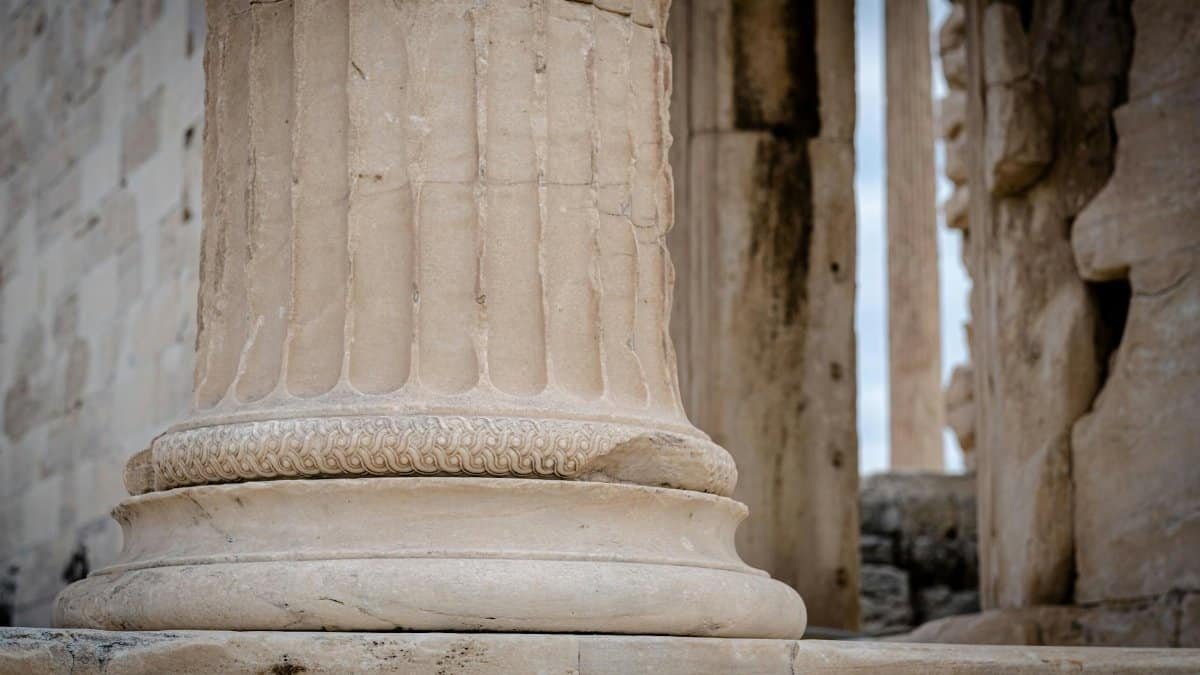In a world where stress seems baked into daily life, more Americans are seeking ancient remedies for modern woes. Consider this: According to a 2023 survey by the National Center for Complementary and Integrative Health, nearly 38% of U.S. adults now use some form of complementary health approach, up from 28% a decade ago. This surge reflects a growing frustration with conventional medicine’s quick fixes, especially when it comes to emotional well-being. Enter Panchakarma, an Ayurvedic detoxification process that’s gaining traction not just for physical cleansing but for its profound impact on mental clarity. Rooted in thousands of years of tradition, it promises to strip away toxins that cloud the mind, potentially unlocking a deeper sense of balance. As wellness trends evolve in 2025, understanding Panchakarma could offer a fresh path for those feeling emotionally stuck.
The Ancient Foundations of Panchakarma

Ayurveda, the traditional medicine system from India, dates back over 5,000 years. It views health as a harmony between body, mind, and spirit. Panchakarma emerges as a cornerstone of this philosophy, literally meaning “five actions” in Sanskrit. These actions aren’t random; they’re designed to purge accumulated toxins, or “ama,” that disrupt the body’s natural equilibrium.
Imagine a bustling clinic in Kerala, where practitioners have honed these techniques for generations. One core element is oleation, where herbal oils are applied to loosen impurities. Then comes therapeutic sweating, followed by purgation, enemas, and nasal therapies. It’s a holistic reset, not a one-and-done spa day. In the U.S., centers like those in California adapt these methods, blending them with Western comforts. A study from the National Library of Medicine highlights how such practices can reduce stress markers, linking ancient wisdom to measurable health benefits.
Yet, it’s the emotional layer that intrigues many. Toxins aren’t just physical; Ayurveda teaches they manifest as anger, anxiety, or unresolved grief. By addressing them, Panchakarma aims to restore doshic balance—vata, pitta, and kapha—the energies governing our inner world.
How Physical Detox Influences Emotional Health

Start with the body, and the mind often follows. That’s the premise behind Panchakarma’s detox protocols. When the digestive system is overloaded, it can lead to foggy thinking and mood swings. Purgation therapies, for instance, clear out built-up waste, which proponents say lightens emotional burdens too.
Take Sarah, a midwestern teacher in her 40s who tried Panchakarma after years of burnout. “It was like lifting a veil,” she recalled in a conversation last year. Her sessions involved gentle herbal enemas and massages that left her feeling unburdened, not just physically but from the resentment she’d carried from a tough divorce. Stories like hers aren’t isolated; they echo in wellness circles where people report sharper focus and reduced irritability post-treatment.
Science backs some of this up. Research published in the Journal of Evidence-Based Integrative Medicine suggests Ayurvedic detox can lower cortisol levels, the hormone tied to stress. In 2025, as remote work blurs boundaries, such tools might become essential for maintaining emotional steadiness amid constant demands.
Of course, it’s not magic. The process demands commitment, often spanning a week or more, with dietary prep. But for those willing, the ripple effects on emotions can be transformative, turning physical renewal into mental resilience.
Navigating the Emotional Release During Treatment

One underappreciated aspect of Panchakarma is the emotional upheaval it can stir. As toxins release, so too can suppressed feelings. Practitioners warn of this “healing crisis,” where tears or anger surface unexpectedly.
Picture a quiet retreat in New Mexico, where participants journal through these waves. One anonymous account shared publicly online described it as “a storm before the calm,” where old traumas bubbled up during oil therapies, only to dissipate, leaving space for peace. This isn’t therapy in the Western sense, but it complements it, offering a somatic path to emotional processing.
Experts from the National Center for Complementary and Integrative Health note that while evidence is emerging, patient reports consistently highlight improved mood regulation. In a culture quick to medicate emotions, Panchakarma invites a slower, more introspective approach, fostering self-awareness that lasts beyond the treatment room.
Still, balance is key. Not everyone experiences intense releases; for some, it’s subtle, like a gradual easing of daily anxieties. The variety underscores why personalized guidance from trained Ayurvedic professionals is crucial.
Real-World Applications in Daily Life

Beyond retreats, Panchakarma principles seep into everyday routines. Simplified versions, like seasonal oil pulling or herbal teas, help maintain emotional equilibrium without full immersion.
In urban hubs like New York, wellness studios offer mini-Panchakarma sessions tailored for busy professionals. A marketing executive named Tom integrated abhyanga massages into his weekly schedule after a full treatment. “It keeps the chaos at bay,” he said, noting how it curbs his reactive temper during high-stakes meetings. Such adaptations make the practice accessible, aligning with 2025’s emphasis on hybrid health strategies.
A report from the Pew Research Center on wellness trends shows rising interest in mind-body practices among middle-aged adults, with 45% reporting better emotional health from alternative methods. Panchakarma fits this mold, bridging ancient detox with modern stress management.
Critics argue it’s too esoteric, but users counter that its effects on clarity and compassion prove otherwise. Integrating it means listening to your body, a skill that enhances emotional intelligence over time.
Common Challenges and Misconceptions

No practice is without hurdles. Panchakarma’s intensity can deter newcomers; the preparatory diet alone—often light and vegetarian—feels restrictive to some. Then there’s the cost, with full programs running thousands, though insurance rarely covers it.
Misconceptions abound too. Some view it as a fad diet, missing its deeper emotional aims. “It’s not about weight loss,” emphasized Dr. Anjali Rao, an Ayurvedic specialist in Chicago. Her patients often arrive skeptical, only to leave with renewed perspective.
Addressing these, education helps. Online resources demystify the process, and starting small builds confidence. For emotional balance, overcoming initial resistance can lead to profound shifts, as evidenced by growing U.S. adoption rates in wellness surveys.
Ultimately, the challenge lies in commitment. In a quick-fix era, Panchakarma demands patience, rewarding those who persist with lasting inner peace.
Expert Perspectives on Long-Term Benefits

What do specialists say about Panchakarma’s role in emotional health? Dr. Vasant Lad, founder of the Ayurvedic Institute, describes it as “rejuvenating the soul.” His teachings emphasize how detox clears mental fog, allowing for better decision-making and relationships.
In clinical settings, therapists observe patterns: clients report fewer depressive episodes post-treatment. A 2022 review in the National Library of Medicine supports this, linking Ayurvedic interventions to enhanced psychological well-being.
Looking at broader trends, as mental health conversations dominate in 2025, Panchakarma offers a complementary tool. It’s not a replacement for therapy, but an ally, helping individuals sustain balance amid life’s ups and downs.
One expert shared a story of a veteran who found solace in the rituals, easing PTSD symptoms. These narratives highlight its potential, urging more research to quantify emotional gains.
Sustaining Emotional Balance Post-Panchakarma

The real test comes after treatment. How do you maintain that newfound equilibrium? Daily practices like meditation and balanced eating extend the benefits.
Communities in places like Austin foster ongoing support, with group sessions reinforcing lessons learned. One participant noted, “It’s like having a reset button for my emotions.”
Incorporating elements into family life—perhaps shared herbal routines—strengthens bonds, turning personal growth into collective well-being. As awareness spreads, Panchakarma could redefine emotional health strategies for generations.
Yet, it’s personal. What works varies, but the core idea endures: by cleansing the body, we free the mind, unlocking a more balanced way of being.
Why Panchakarma Resonates Today

In an age of digital overload, Panchakarma’s appeal lies in its simplicity. It counters the noise with intentional quiet, fostering emotional depth many crave.
From corporate retreats to home practices, its adaptability shines. As 2025 brings new stressors, this ancient key might just unlock the balance we all seek, one detox at a time.
